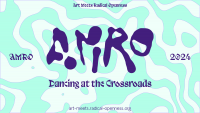About the Conference
FTC attracts researchers, scientists and technologists from some of the top companies, universities, research firms and government agencies from around the world.
Join us for FTC 2016, the world’s pre-eminent forum for reporting technological breakthroughs in the areas of Computing, Artificial Intelligence, Security, Robotics, Electronics and Communications. The conference is predicated on the successful conferences by The Science and Information (SAI) Organization that have been held in the UK since 2013. FTC 2016 combines a stimulating technical program with an exciting new venue, San Francisco, a city renowned for its steep rolling hills, eclectic mix of architecture, and landmarks including the Golden Gate Bridge and cable cars.
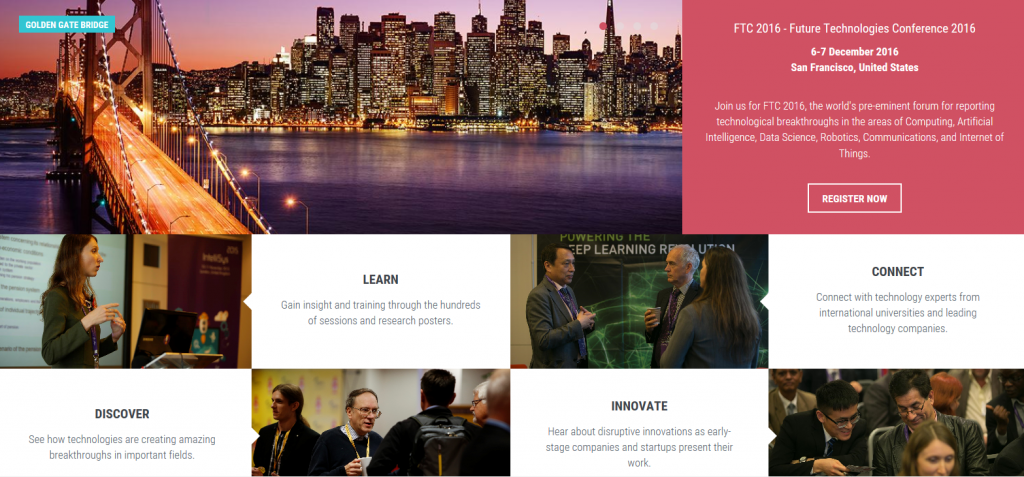
A call for papers, posters and demo was open until 1 May 2016.
Conference Tracks:
Technology Trends
- Internet of Things
- Cloud Computing
- Big Data
- Smart Cities
- Machine to Machine
- High Performance Computing
- Mobile Applications
- Knowledge Management
- Social Computing
- Software Engineering and Quality
Intelligent Systems
- Artificial Intelligence
- Neural Networks
- Fuzzy Logic
- Expert Systems
- Agents and Multi-agent Systems
- Natural Language Processing
- Data Mining
- Support Vector Machines
- Ambient Intelligence
- Sentiment Analysis
Machine Vision
- Human Computer Interaction
- Computer Vision
- Image Processing
- Robotics
- Geographic Information Systems
- Video Analysis
- Medical Diagnosis
- Segmentation Techniques
- Augmented Reality
- Virtual Reality
Security
- Privacy
- Surveillance
- Biometrics
- Internet Security
- Electronic Data Interchange (EDI)
- Web Services and Performance
- Secure Transactions
- Cryptography
- Secure Protocols
- Cyber Security
Communications
- Connected Machines
- Networking
- Wireless/ Mobile Communication
- Quantum Computing
- Satellite Communication Systems
- 3G/4G Network Evolutions
- Mobile Adhoc Networks
- Open Spectrum Solutions
- Communication Protocols
- Cognitive Radio
Electronics
- Green Computing
- Smart Grids
- Sensing and Sensor Networks
- E-Waste
- Digital Circuits
- Analog Circuits & Signal Processing
- Design Automation
- Computer Aided Network Design
- Assembly and Packaging
- Systems Architectures
e-Learning
- e-Learning Tools
- Mobile Learning
- e-Learning Organisational Issues
- Gamification
- Collaborative Learning
- Curriculum Content Desig
- Educational Systems Design
- Virtual Learning Environments
- Web-based Learning
- Delivery Systems and Environments
e-Business
- e-Business Ontologies and Models
- e-Commerce Application Fields
- e-Commerce Economics
- e-Commerce Services
- Digital Marketing
- Enterprise Resource Planning
- Data Analysis
- Virtual Organisations
- Business Intelligence
- Web Analytics
Website of the event: http://www.saiconference.com/FTC2016
Call for papers: http://www.saiconference.com/FTC2016/CallforPapers


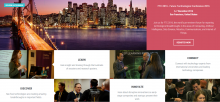
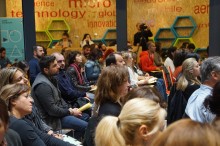
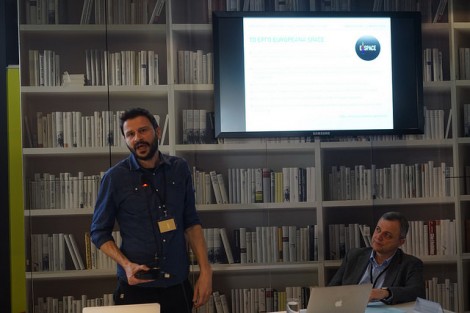 The workshop «Repurpose, Experience, Taste and Rethink Culture», was held on March 22, 2016 at INNOVATHENS, Technopolis, City of Athens. The workshop was organized by the National Technical University of Athens and with the support of PostScriptum. The main aim of the event was to generate new perspectives and facilitate the creative re-use of cultural heritage and associated metadata made available through online digital collections within a framework of creative experimentation and novel dialogue between multidisciplinary sectors, explore the potential of crowdsourcing as a means of promoting increased public participation in core tasks such as collecting, describing, categorizing, or curating heritage collections.
The workshop «Repurpose, Experience, Taste and Rethink Culture», was held on March 22, 2016 at INNOVATHENS, Technopolis, City of Athens. The workshop was organized by the National Technical University of Athens and with the support of PostScriptum. The main aim of the event was to generate new perspectives and facilitate the creative re-use of cultural heritage and associated metadata made available through online digital collections within a framework of creative experimentation and novel dialogue between multidisciplinary sectors, explore the potential of crowdsourcing as a means of promoting increased public participation in core tasks such as collecting, describing, categorizing, or curating heritage collections.






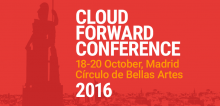
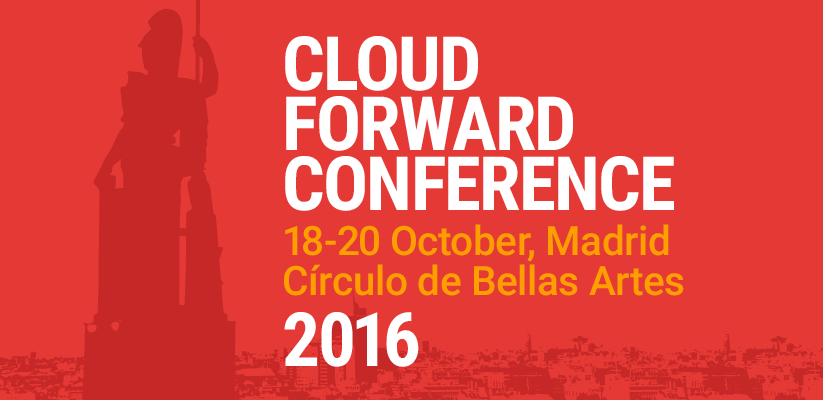
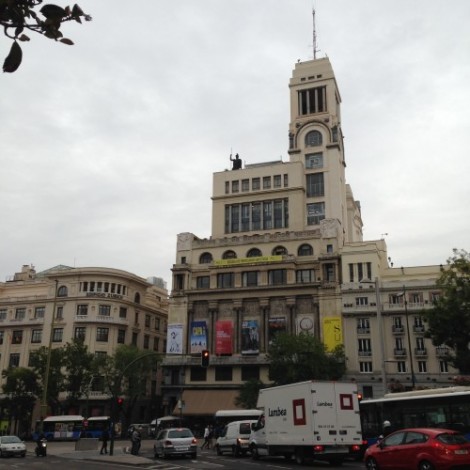






























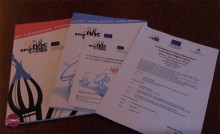
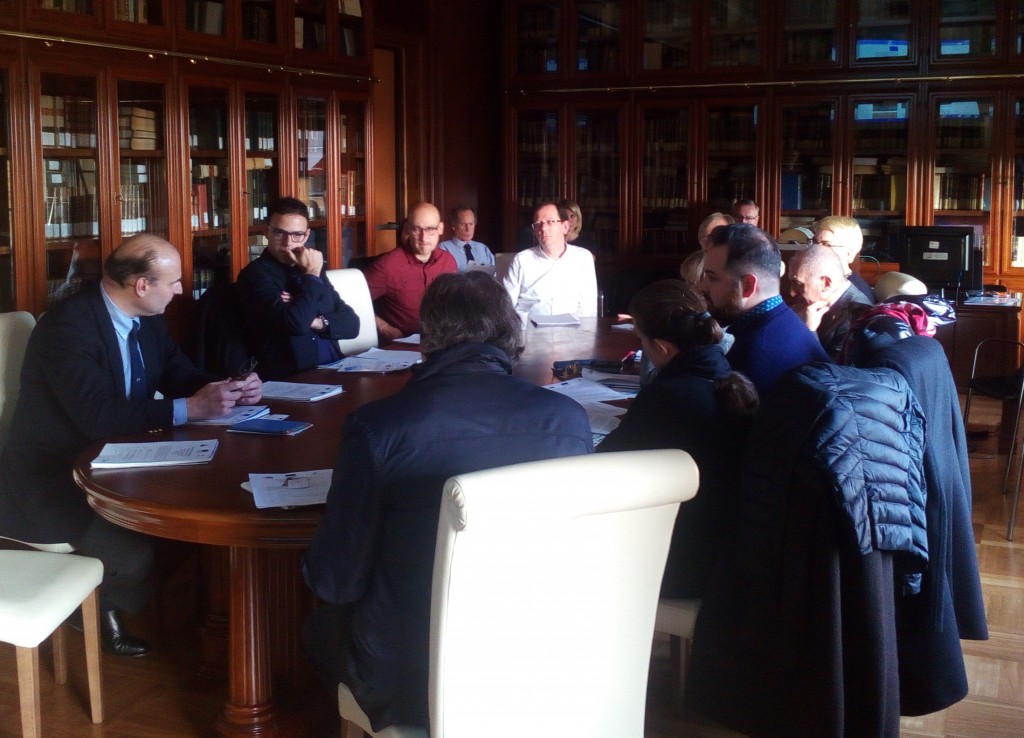
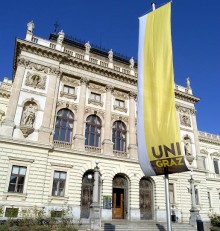
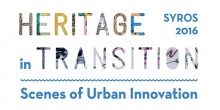
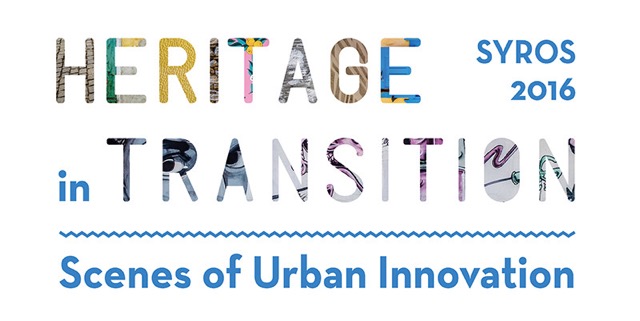

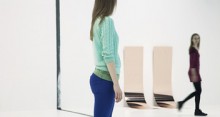

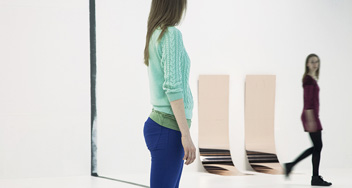
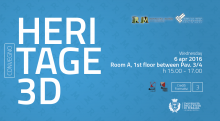
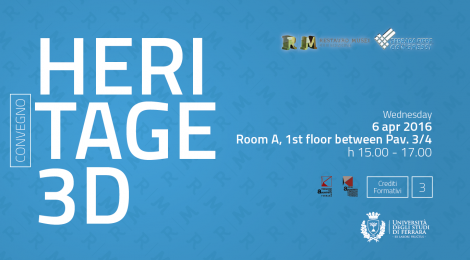
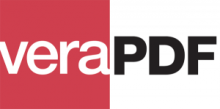
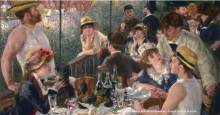
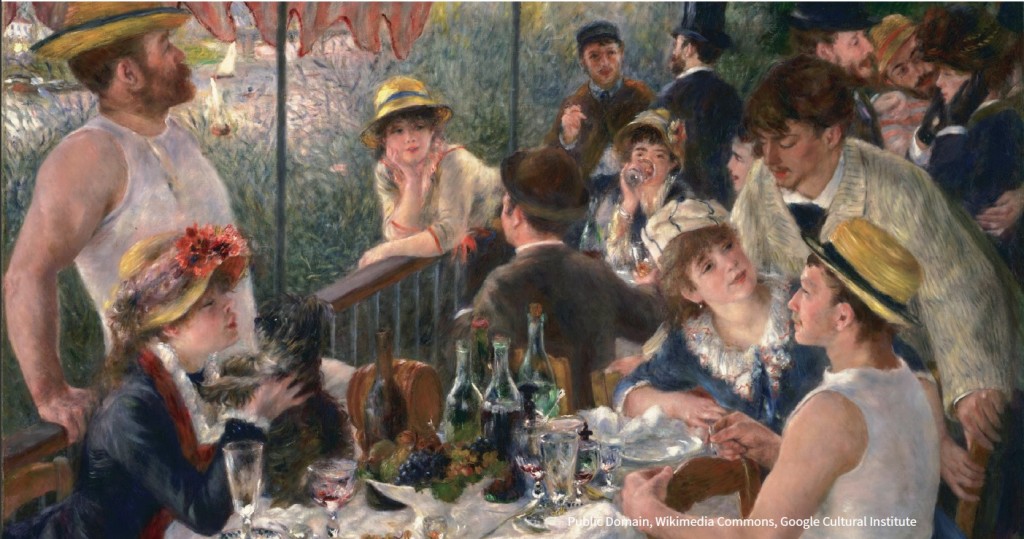 The aim of this RICHES policy brief is to highlight the growth of community-led food initiatives and the changing spaces of food production and consumption. It shows how food culture can be a force for change and how citizens can co-create cultural heritage around food. It provides some brief examples of community-led food initiatives and makes recommendations for policies which are needed to enable these to thrive.
The aim of this RICHES policy brief is to highlight the growth of community-led food initiatives and the changing spaces of food production and consumption. It shows how food culture can be a force for change and how citizens can co-create cultural heritage around food. It provides some brief examples of community-led food initiatives and makes recommendations for policies which are needed to enable these to thrive. If you have interesting news and events to point out in the field of digital cultural heritage, we are waiting for your contribution.
If you have interesting news and events to point out in the field of digital cultural heritage, we are waiting for your contribution.














